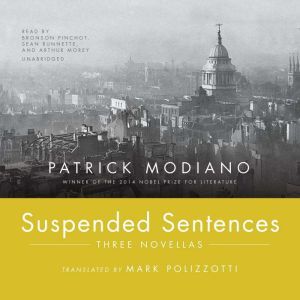Quotes
“Vividly translated by Mark Polizzotti…As good a place as any
to enter the long, slow-moving river of Modiano’s fiction.”
New York Times Book Review
“Modiano’s work is unknown to most North American readers, and
this is as good an introduction as any. The stories here highlight his concerns
as a chronicler of the Occupation years and the lean times leading up to 1968…Fictions with a moral bite, depicting a world in which
everyone, it seems, is complicit in crimes not yet specified. Moody, elegant, and dour.”
Kirkus Reviews (starred review)
“These three atmospheric
novellas demonstrate the range of reading pleasure afforded by Modiano’s
approach and the dark romance of his Paris…Each first-person novella is also a
portrait of the artist.”
Publishers Weekly
“Modiano’s style, plain but elliptical and carefully wrought…Unforgettable.”
Booklist
“This collection of three novellas is pure Modiano, with haunting evocations of a Paris long past. It’s a hazy blend of fiction and his own experiences as a child born at the end of the war…His sparse, beautiful prose distills a feeling and mood that remains with me.”
Cara Black, author of Murder on the Left Bank
“Haunting. Like a master
perfumer, Nobel Prize winner Patrick Modiano has crafted a signature scent: his
unmistakable blend of nostalgia, grief, love, disquiet, Paris.”
Damion Searls, author of The Inkblots
“Reading Modiano is
like experiencing a very specific flavor you don’t encounter every day—saffron
or asafetida, say. He’s direct and precise but also gently melancholy, like the
squeezed essence of passing time. Mark Polizzotti’s translation expertly
catches the timbre of his voice.”
Luc Sante, award-winning writer and critic
“Completely,
insouciantly, Modiano describes the interiors and essential matter of the
French literary imagination. In these fictions, the sworn bewilderment of
intimacy as cause and quest and actual topography of narrative becomes an
inexhaustible source. And from that source there flows a riverine voice of
legends and documentary legerdemain: always candid, always fitly perplexed. In
the three novellas gathered as Suspended Sentences, this voice
elapses across Paris as it never was yet somehow must have
been. Otherwise, there could be no accounting for acrobats, for Edith Piaf, for
collaboration and liberation and the spring of 1968. All of these and more
Modiano addresses with a luminous bewilderment more intimately exacting and
more precise than any certainty could be.”
Donald Revell, author of Pennyweight Windows



